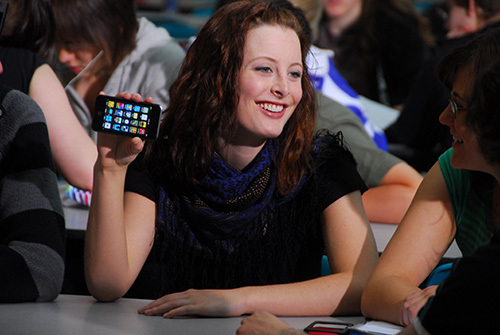
Tisztelt Jeff Johnson, Az oktatási miniszter a Alberta, talked to me last November about his experience as co-chair of the province’s pioneering “Inspiráló Oktatás” kezdeményezés. The question posed by his steering committee to all Albertans was: What kinds of skills and attributes should an educated Albertan graduating in 2030 have? The response, which became the inspiration for education reform in Alberta, was that students needed to be three things: engaged thinkers, ethical citizens, és szükség van a vállalkozói szellem. Milyen szerepet játszott abban, hogy a technológia pedagógusok fenti célok elérése érdekében? I decided it was time to invite Jeff back to A Global Search for Education series to give us an update.
Pozícióját megelőzően az oktatási miniszter az Alberta, Tisztelt Jeff Johnson volt az infrastrukturális miniszter, Felelős miniszter Oil Sands Titkárság, és képviselői asszisztens a Treasury Board. Jeff is van tapasztalata dolgozik a pénzügyi piacok a határidős kereskedési teremben pit boss és az épület egy sor sikeres kisvállalkozások.
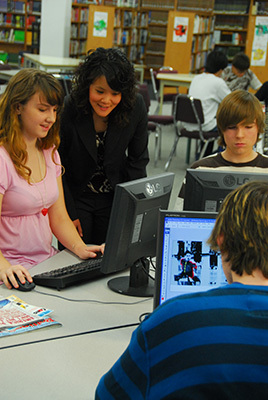
How has technology impacted the Alberta education system? Mit oktatók látni, mint az előnye és hátránya az a tanulás szempontjából?
Advances in technology have had a big impact on the world and, Ennek eredményeként, a big impact on our education system as well. Kids today grow up in a world where they have information at their fingertips and education has had to adjust to meet the needs of those students. This is both a challenge and an opportunity for Alberta’s educators.
When we talked with Albertans during the Inspiráló Oktatás dialogue, one of the main topics of discussion was technology. Albertans told us that we needed to shift from using technology to support teaching to using technology to support the creation and the sharing of knowledge. A part of that is the development of competencies. We are currently shifting Alberta’s curriculum towards competency-based learning. That means that instead of memorizing facts, kids today are learning skills. Például, they are learning how to use knowledge to tell fact from fiction online. This is crucial in an age of Wikipedia – kids need to know how to tell if information is credible, a skill that will be important for their entire lives.
The impact of technology on teaching has also been significant. Teachers today use smart boards, so kids can interact with their lessons. They use digital cameras and laptops, so kids can shoot video and make presentations. And technology allows teachers to tailor lessons to an inclusive environment – providing visual cues for someone with a hearing impairment, például, or tailoring lessons for children with autism.
How is the role of the teacher changing in the digital age?
Access to technology and information has forced teachers to think differently about how they plan for learning. Teachers not only have to be users of technology and digital resources, but they have to be keenly aware that students need to understand that information in a digital age needs to be validated. Teachers need to shift their thinking from a single answer or source of information to accommodating multiple ways of getting to the answer using a variety of sources of information. It permits students to engage in new knowledge creation in ways that have never been possible before. Teachers are now more accessible to parents than they have ever been in the past, which is also a different paradigm for teachers.
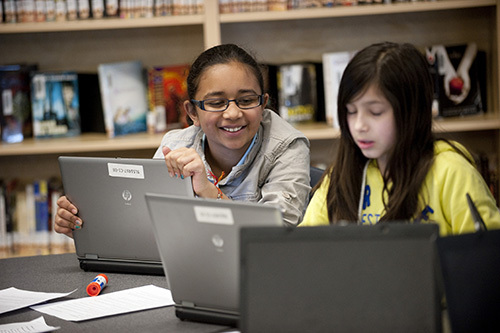
Teljes állam az Egyesült Államokban elfogadták a digitális tankönyvek. Az egyetemi könyvtárak egyre adattárak a digitális tartalom. Sokan azt mondják, a tankönyvek már elment a digitális és valóban a következő generációs digitális tartalom nem messze. What digital learning tools have been implemented in Alberta classrooms and what do educators see as the pros and cons of these?
School authorities are becoming increasingly interested in incorporating technology and digital resources into their classrooms. Through LearnAlberta.ca, Alberta Education has been providing online access to education materials since 2001. This site is host to approximately 8,500 erőforrás. Materials include teaching and learning resources (some in the form of interactive applets and engaging software) that are directly correlated to programs of study, as well as reference materials, and access to online programs of study and assessment materials. LearnAlberta.ca has seen an increase in the use of digital materials for teachers and students following the Alberta programs of study.
Ezen túlmenően, five Alberta school boards are piloting the development of a Collaborative Online Resource Environment (CORE), accessible at http://www.albertacore.ca, to collaboratively acquire, fejleszt, store, manage, and share digital classroom resources for anytime, bárhol tanulás. A mai napig, students and teachers enjoy shared access over a common infrastructure to over 165,000 digital resources. A felhasználók saját erőforrásaik találnak érték, és észrevételt tehetnek hatékony módja az általuk használt ezek az oktatási környezetben. A University of Calgary folytat hivatalos kutatás ezen innovatív projekt.
Alberta, iskolai hatóságok maximális rugalmasságot meghatározzák, hogy milyen források lesznek tegyék lehetővé a diákok, és milyen politikát fognak bevezetni, hogy irányítsák a források felhasználását szabályozó. Teachers determine for themselves what level of technology use is most appropriate to meet the needs of their students. Whatever resources teachers and school authorities select, equity of access and support for inclusive classrooms will continue to be guiding priorities in those decisions.
Tablets have been found to be extremely helpful in supporting students with unique learning needs – examples include:
- Increasing font size for dyslexic students – helps to de-clutter their vision
- English Language Learners – can use the recording features to see and hear themselves speaking which helps with language acquisition
- Sign 4 Me app – helps to facilitate communication between a deaf student and his classmates

How has technology impacted curriculum design in Alberta?
Through Curriculum Redesign, we are looking at various shifts for curriculum and curriculum development. One of these shifts is to move to a more digitally based curriculum (tanulmányi programok, értékelések, és a tanulás és a tanítás erőforrások).
A technológia erejét ki kell használni az innováció és a felfedezés támogatására. Úgy gondoljuk, hogy a digitális alapú tantervre való átállás nagyobb rugalmasságot tesz lehetővé helyi szinten a tanulás bármikori támogatása érdekében, helyen vagy tempóban, valamint a tanulmányi és tanulási források programjainak folyamatos fejlesztésének és frissítésének lehetősége.
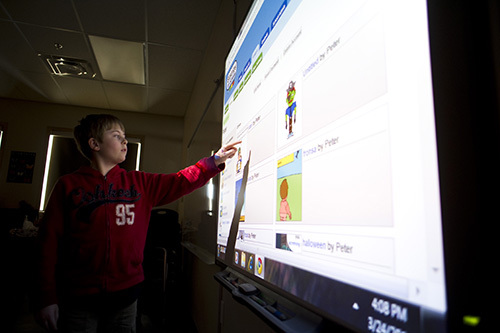
A legutóbbi Pew kutatások ismét azt mutatja, hogy a használata tabletták, mobiltelefonok, internet sources and social media platforms such as Facebook and Twitter continues to infiltrate classrooms in the US rapidly. Are you seeing the same trend in Alberta classrooms? Mennyiben a használata ezen eszközök egy részét a tantervbe? Van egy olyan korban, amely alatt úgy gondolod, hogy ezek az eszközök nem megfelelőek az osztálytermekben?
Alberta is seeing these same trends. We would say that technology is being used appropriately across all grades because in Alberta we have balanced curriculum that includes a balance of learning activities, with technology and other resources, as well as interaction and daily physical activity.
Alberta Oktatási jelenleg folytat a kutatás gyakorlati közösség, hogy vizsgálja lehetséges felhasználási technológia, beleértve tablet eszközök, óvodában Grade 4 tantermek. One of the focuses is to explore what applications of technology are most effective and appropriate for various age groups.
There are several school authorities in Alberta that have invested in class or school sets or portable carts of tablet or laptop devices, like Chromebooks, and interest in educational technology continues to increase throughout the education system. Alberta Education is currently working to finalize an updated Learning and Technology Policy Framework to establish a common vision for technology’s role in education, in alignment with Inspiráló Oktatás. This vision will help decision makers at all levels take appropriate actions that will complement each other and yield maximum benefit for students.
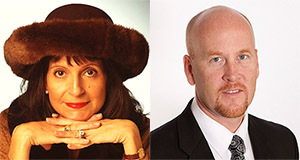
All photos are courtesy of Ministry of Education Alberta.
További cikkek a Got Tech? sorozat: A Global Search for Education: Got Tech? – Finnország, A Global Search for Education: Got Tech? – Ausztrália, A Global Search for Education: Got Tech? – Szingapúr, A globális keresési Education: Got Tech?- Egyesült Államok, A globális keresési Education: Got Tech? IB iskolák egy virtuális világ, A Global Search for Education: Got Tech? – Argentína
A globális keresési Oktatási, velem és világszerte elismert szellemi vezetők többek között Sir Michael Barber (UK), DR. Michael blokk (Az US), DR. Leon Botstein (Az US), Professzor Clay Christensen (Az US), DR. Linda Darling-Hammond (Az US), DR. Madhav Chavan (India), Professzor Michael Fullan (Kanada), Professzor Howard Gardner (Az US), Professzor Andy Hargreaves (Az US), Professzor Yvonne Hellman (Hollandiában), Professzor Kristin Helstad (Norvégia), Jean Hendrickson (Az US), Professzor Rose Hipkins (Új-Zéland), Professzor Cornelia Hoogland (Kanada), Tisztelt Jeff Johnson (Kanada), Mrs. Chantal Kaufmann (Belgium), DR. Eija Kauppinen (Finnország), Államtitkár Tapio Kosunen (Finnország), Professzor Dominique Lafontaine (Belgium), Professor Hugh Lauder (UK), Professor Ben Levin (Kanada), Lord Ken Macdonald (UK), Professzor Barry McGaw (Ausztrália), Shiv Nadar (India), Professzor R. Natarajan (India), DR. PAK NG (Szingapúr), DR. Denise Pope (US), Sridhar Rajagopalan (India), DR. Diane Ravitch (Az US), Richard Wilson Riley (Az US), Sir Ken Robinson (UK), Professzor Pasi Sahlberg (Finnország), Professzor Manabu Sato (Japán), Andreas Schleicher (PISA, OECD), DR. Anthony Seldon (UK), DR. David Shaffer (Az US), DR. Kirsten Magával ragadó Are (Norvégia), Chancellor Stephen Spahn (Az US), Yves Theze (Lycee Francais-beli), Professor Charles Ungerleider (Kanada), Professzor Tony Wagner (Az US), Sir David Watson (UK), Professzor Dylan Wiliam (UK), DR. Mark Wormald (UK), Professzor Theo Wubbels (Hollandiában), Professzor Michael Young (UK), és professzor Minxuan Zhang (Kína) mivel azok feltárása a nagy kép oktatási kérdés, hogy minden nemzet ma szembesül. A Global Search Oktatási közösségi oldal
C. M. Rubin a szerző két legolvasottabb internetes sorozat, amely megkapta a 2011 Upton Sinclair díjat, “A Global Search for Education” és “Hogyan fogjuk olvasása?” Ő a szerzője a három bestseller könyv, Beleértve The Real Alice Csodaországban.


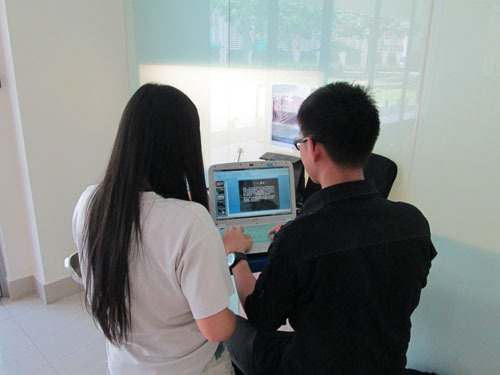
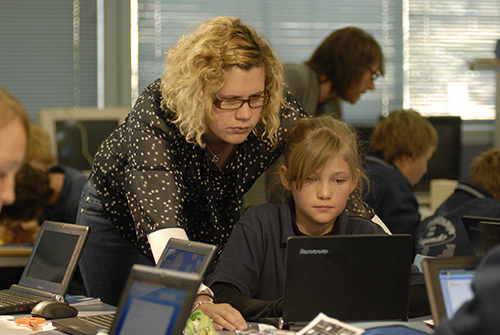
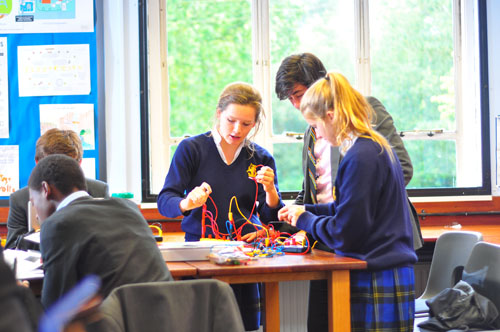
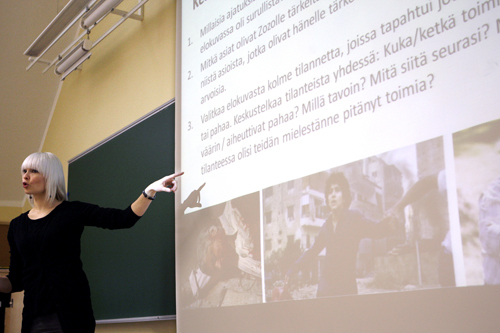
Legutóbbi hozzászólások